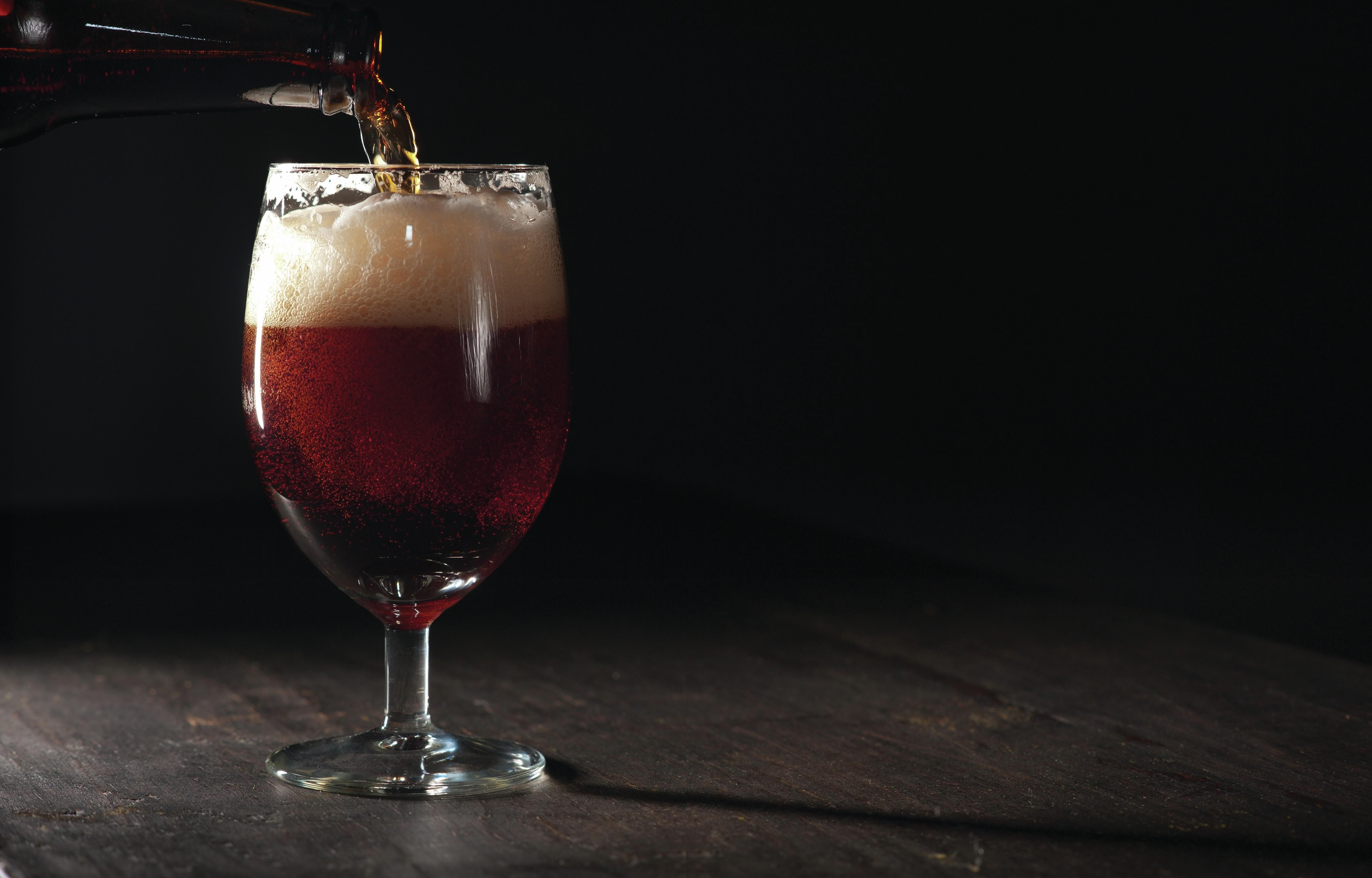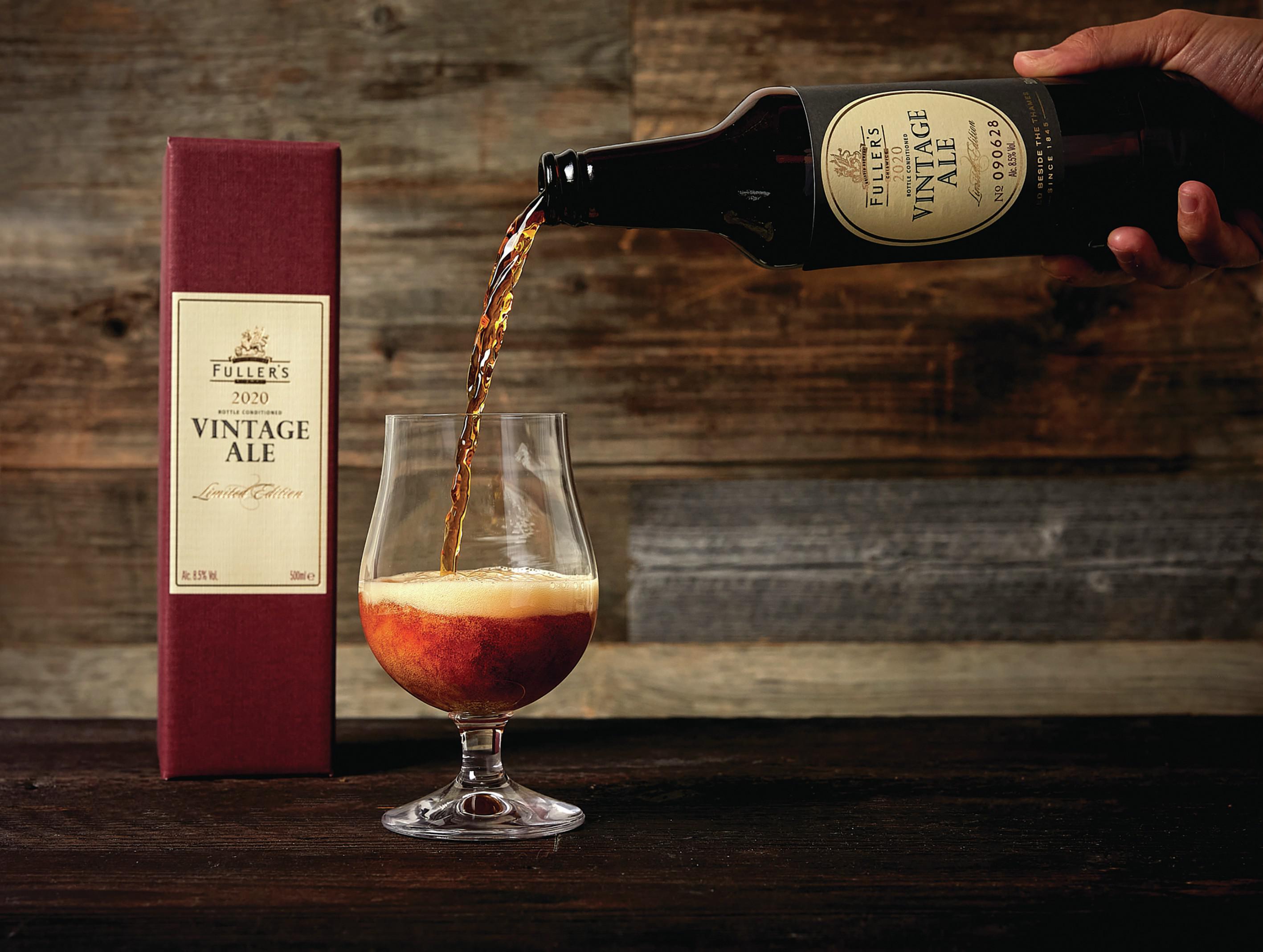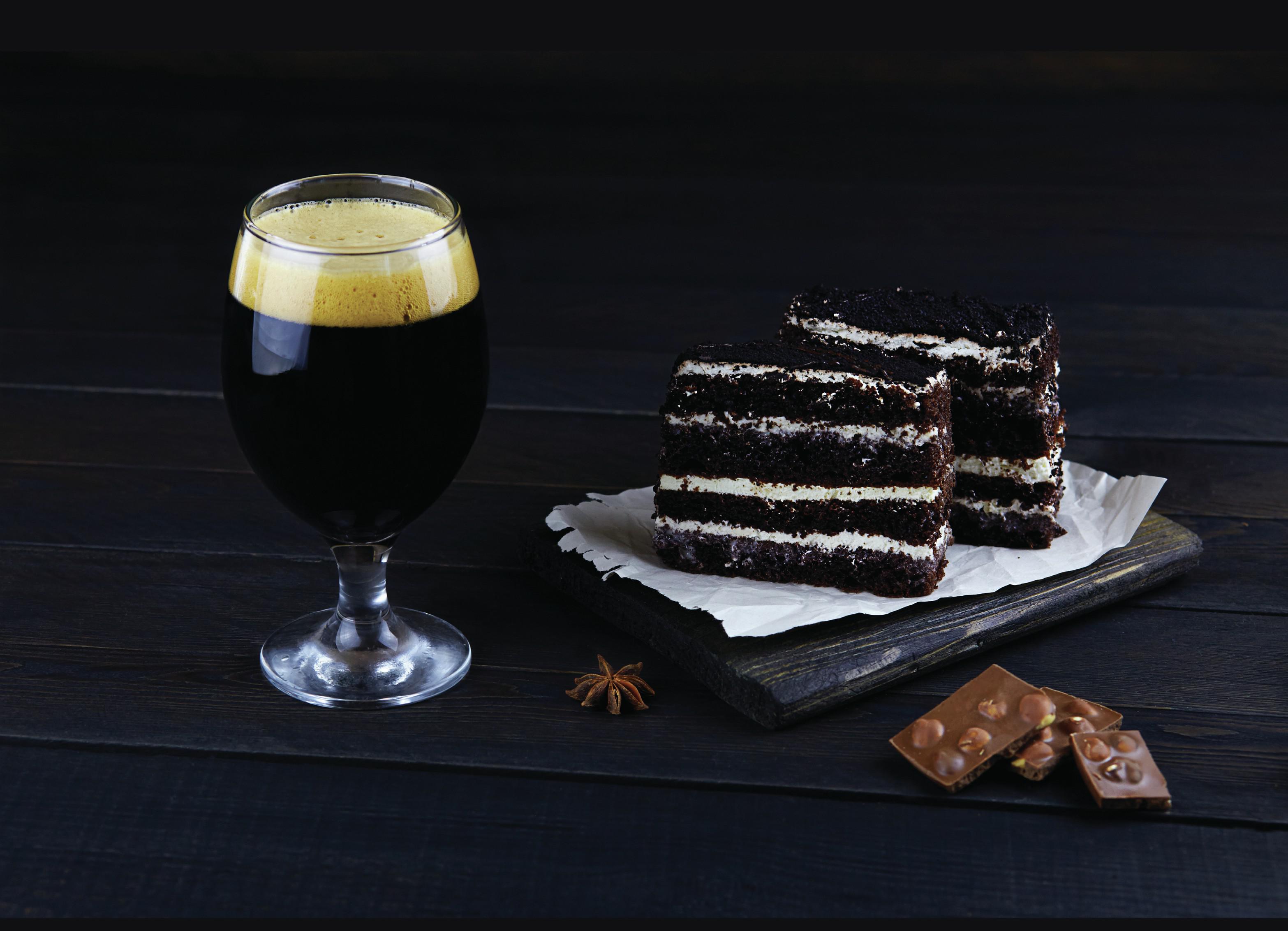This website uses cookies so that we can provide you with the best user experience possible. Cookie information is stored in your browser and performs functions such as recognising you when you return to our website and helping our team to understand which sections of the website you find most interesting and useful.
What makes a luxury beer?
Ask any self-respecting beer fan what they consider to be the greatest beer and most will give you a response that shows its ability to be enjoyed many times over. However, ask them to name a ‘luxury beer’ and you’re into trickier territory. Jessica Mason reports.

Luxury, in the beer world, means one you can’t always get your hands on, but wish you could. It is synonymous with exclusivity and is often saved for special occasions. Sessionability goes out of the window in favour of the full-bodied liquorice hit of a voluptuous inky brew, for example. Sometimes, more really does mean more.
Most collated data will tell you that BrewDog’s The End of History tops the majority of lists of the most expensive beers in the world, proving that when it comes to the pursuit of luxury, many are happy to look further than the booze aisles of their local supermarket, especially when the likes of Punk IPA become so heavily discounted in a bid for retailers to attract shoppers.
According to Steve Dunkley, brewer and owner of Manchester ’s Beer Nouveau, a beer needs to be a little out of reach to be deserving of the term. Dunkley explains: “As with all things it’ll come down to cost. Not value, but cost. When it’s priced out of the reach of average drinkers and only accessible as a ‘treat’, then it becomes a luxury. Los Angeles-based content creator Nate Mesics, who co-hosts the Weekly Beer Show, agrees, identifying how “it has to do with accessibility”. Due to distribution restraints and geography, he says: “I can’t easily get my hands on a Lunch (IPA) from Maine Brew Co, so I have to overpay for it. That’s a luxury, to me.”
Truly, luxury in beer terms has to see all areas chime as being premium and memorable in order to increase the presence of brews in the luxury market. Richard Archer, co-founder and managing director of Devon’s Utopian Brewery, illustrates this perfectly, comparing indulging in a high-end beer to visiting a top hotel. The end consumer is looking for their expectations to be met and to be made to feel like this is a once-in-a-lifetime experience. “Luxury to me suggests the best of everything, so in this context it means having the best brew team with the very best ingredients on the best kit, brewing a beer style that’s super lush,” Archer explains.
The feeling that a luxury beer evokes is one of “exclusiveness, specialness and rarity – something is not a luxury if you have it all the time” states Andy Wingate, director of category and insights, Asahi UK, pointing out that “you can get a feeling of luxury from beers using certain rare ingredients or employing different brewing techniques”. That is potentially what the craft beer movement offered consumers when it first took off. “Scarcity of supply through small-batch runs or those needing more time to mature can also be used to deliver that special feeling,” he says.
Beer sommelier, educator and podcast creator Natalya Watson, who is based in the UK, believes that luxury beers “should be sipped, savoured, and shared, typically because they’re produced in limited quantities, packaged in a large format (750ml), and often higher in ABV, and in price, as well,”she says.

According to Watson, many barrel-aged beers fit this definition, including the mighty Perennial Artisan Ales’ Barrel Aged Abraxas (a 12.8%-ABV imperial stout brewed with ancho chilli peppers, cacao nibs, and cinnamon sticks, aged in whiskey barrels). Another to look out for is Duvel Barrel Aged (an 11.5%-ABV Bourbon-barrel-aged Belgian golden strong ale).”This is primarily because “these beers can spend years ageing in wooden barrels to develop their flavours, and are produced in small batches” which means “they naturally command a higher price point than many other beers. But they’re well worth trying and sharing.”
Watson also reveals that bottle shops can be infinitely better than supermarkets for hunting down luxury beers. “Ultra-premium beers aren’t typically available in supermarkets. Visit your local bottle shop to ask for their recommendations or ask your favourite craft beer bar if they have a list of ‘sharing bottles’ (750mls) and you’ll make some very special discoveries.”
There are plenty of great independent bottle shops to be scoured for such treasures. Isobel Blurton, innovation brewer of east London’s Pinter, highlights her own local independent Clapton Craft as one of the best to frequent for a more luxurious product, and also recommends “paying a visit to actual breweries, especially when you have time off over the Christmas season”.
Matthew Koep, spokesperson for AB Inbev’s Goose Island says: “More pubs and bars are beginning to stock luxury beers in the fridges to complement the craft beers already on offer. For example, this month we’ll have bottles from the 2021 vintage of Bourbon County Stout in pubs across the UK.”
Koep admits that retailers “are increasingly offering a wider variety” of luxury bottlings, “a great example of this being Waitrose, which will soon be stocking Camden Town Brewery’s Imperial Pilsner”. He also highlights how “most breweries sell direct to consumers too”, so it’s worth checking out websites.
Wingate says some bottles are kept to mature, such as Fuller ’s Vintage Ale. “Bottles are often kept by consumers for several years, as people wait to see the character of the drink change, with different flavours appearing over time.”
The Asahi-owned Dark Star, currently based in West Sussex but set to move to Greenwich, London, recently resurrected the last batch of Gale’s Prize Old Ale, and is now releasing a 100-year-old recipe to the public. As Koep says: “Drinking a beer that goes back to the times of King George V is surely a luxury for those who are able to get hold of a bottle or two.”


